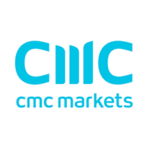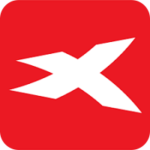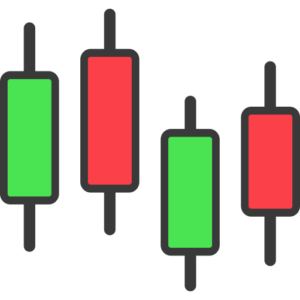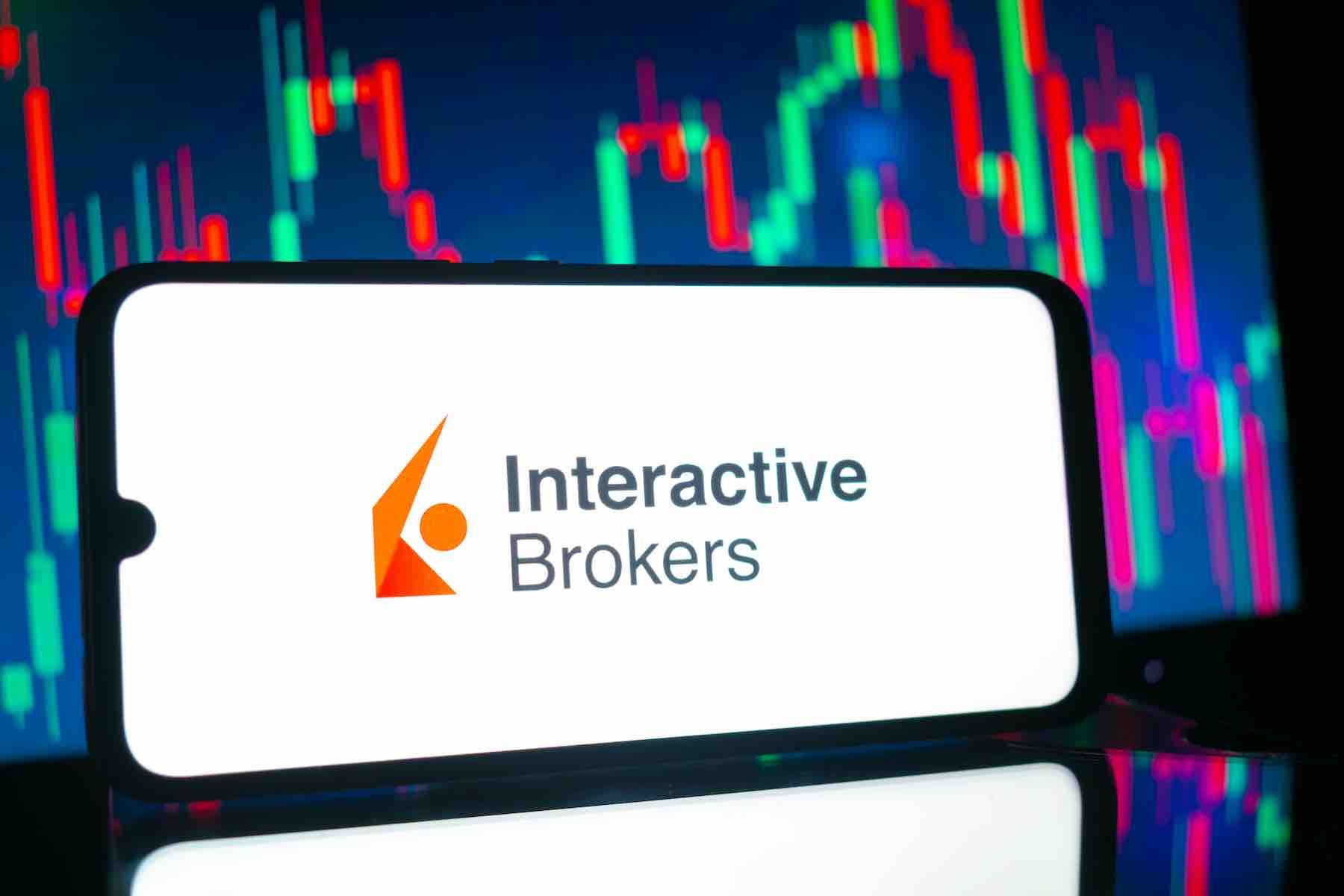Best Stock Brokers 2025
The hunt for the best stock brokers in 2025 isn’t about who has the flashiest app or the loudest ads; it’s about who can help you grow your money. The game has changed, brokers are rolling out AI-powered research, zero-commission trading, and advanced risk tools that were once reserved for Wall Street pros.
With more than 130 million retail traders worldwide, the stakes have never been higher. At BrokerGuide.com, we’ve sifted through the noise, tested the platforms, and uncovered the brokers that truly stand out in 2025. This guide will show you exactly where to trade with confidence.

Top 10 Best Stock Brokers in 2025
4.9/5 | ||
4.8/5 | ||
4.7/5 | ||
4.7/5 | ||
4.6/5 |
4.6/5 | ||
4.5/5 | ||
4.4/5 | ||
4.4/5 | ||
4.4/5 |
4.9/5 | |
4.8/5 | |
4.7/5 | |
4.7/5 | |
4.6/5 |
4.6/5 | |
4.5/5 | |
4.4/5 | |
4.4/5 | |
4.4/5 |
Finding the right broker can make all the difference in your investing journey. In 2025, the global stock trading market is projected to reach over $14 trillion in daily volume, and brokers are racing to keep up—offering faster platforms, lower fees, and smarter tools to give investors an edge.
But not every broker delivers on those promises. That’s why at BrokerGuide.com, we’ve done the homework for you. In this guide, you’ll discover the Top 10 Best Stock Brokers of 2025—the ones that combine trust, innovation, and real value for every type of trader.
10 Best Stock Brokers

Interactive Brokers
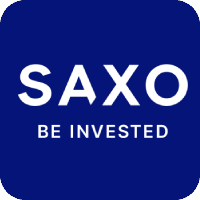
Saxo
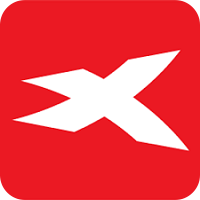
XTB
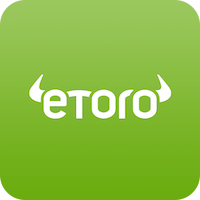
eToro

IG
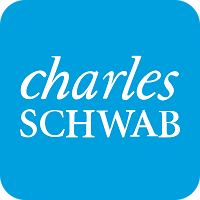
Charles Schwab

Fidelity

Moomoo

Trading 212
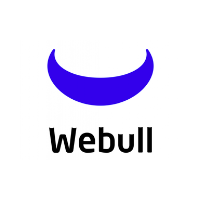
Webull
Key Takeaways
☑️ Global Reach Matters – Interactive Brokers and Saxo lead with access to 150+ markets and 70,000 instruments, ideal for investors who want maximum choice.
☑️ Low-Cost Trading Is the New Standard – Zero-commission stock and ETF trades are now offered by platforms like Charles Schwab, Fidelity, Trading 212, Webull, and Moomoo, lowering barriers for new traders.
☑️ Scale Builds Trust – Giants like Schwab ($8T+ in client assets) and Fidelity ($12T+ AUA) dominate through size, reliability, and decades of proven performance.
☑️ Innovation Is Driving Growth – eToro’s 35M+ social traders and Moomoo’s 63+ technical indicators highlight how unique features can attract millions of users worldwide.
☑️ Beginner-Friendly Options Are Expanding – Trading 212 and Moomoo stand out with fractional shares, instant account approval, and simple apps for first-time investors.
☑️ Pro Traders Still Have Their Favorites – IBKR’s ultra-low fees, Saxo’s speed, and IG’s 17,000+ markets continue to attract advanced and professional traders.
☑️ Mobile Trading Dominates – Webull, eToro, and Moomoo’s slick apps prove that investors now expect institutional-grade tools right on their phones.
Best Stock Brokers Key Features

After conducting over 200 hours of testing across platforms, our team at BrokerGuide.com narrowed down the stats that truly impact your trading experience. In this section, you’ll find our exclusive in-house ratings, the minimum deposit required to get started, and the average account opening time based on real applications.
By putting brokers through the same rigorous process, we’ve created a side-by-side comparison that shows exactly how each one performs where it matters most.
| Broker | Overall Rating | Minimum Deposit | Account Opening Time |
|---|---|---|---|
| Interactive Brokers | 4.9/5 | $0 | 1-3 days |
| Saxo | 4.8/5 | $0 | 2 days |
| XTB | 4.8/5 | $0 | 1 day |
| eToro | 4.7/5 | $50 | 1 day |
| IG | 4.6/5 | $0 | 1-3 days |
| Charles Schwab | 4.6/5 | $0 | 1 day |
| Fidelity | 4.5/5 | $0 | 1 day |
| Moomoo | 4.4/5 | $0 | 1-3 days |
| Trading 212 | 4.4/5 | $1 | 1 day |
| Webull | 4.4/5 | $0 | 1 day |
How to Choose a Stock Broker in 2025
With so many platforms competing for your attention in 2025, the right choice comes down to matching a broker’s strengths with your trading goals. Here are the key factors to consider before opening an account:
Pro Tip: The best broker for you isn’t just the one with the lowest costs, it’s the one that aligns with your trading strategy, skill level, and long-term goals.
Broker Guide
Critical Pitfalls to Avoid - Best Stock Brokers
Choosing the wrong broker doesn’t just waste time; it can cost you thousands of dollars. Too many traders rush in and learn the hard way. Here are the traps you absolutely need to avoid:
- Chasing Low Fees Blindly – Some platforms lure you in with “zero commission” promises, but you pay through wider spreads, slow execution, or poor customer service. Cheap can quickly become very expensive.
- Trusting Unregulated Brokers – If your broker isn’t licensed by a top regulator like the FCA, SEC, or ASIC, you’re effectively gambling with your money. In the worst cases, your funds can disappear overnight.
- Ignoring Hidden Charges – Inactivity fees, overnight financing, and steep withdrawal costs quietly drain accounts. Many traders don’t notice until hundreds are gone.
- Overestimating Your Skill Level – Jumping into a complex platform with leverage and advanced order types can lead to rapid losses you don’t fully understand. Match the tools to your actual experience.
- Not Reading the Fine Print – Bonuses, welcome offers, and “free trades” often come with strings attached. Missing the small print could lock up your money or limit your withdrawals for months.
Pro Tip: Avoid these pitfalls, and you’ll save yourself not just money, but also stress, frustration, and potentially devastating mistakes.
Broker Guide
Best Stock Brokers - Users Data
Expert reviews can tell you a lot, but real traders reveal what it’s actually like to use these platforms day after day. That’s why we’ve gathered insights from our extensive user database, including ratings on fees, ease of use, mobile apps, and overall satisfaction.
These aren’t marketing claims; they’re the experiences of investors who have opened accounts, placed trades, and dealt with customer service firsthand.
In this section, you’ll see how each broker stacks up based on community-driven feedback, highlighting both the strengths that keep traders loyal and the pain points that drive them away. Use this data to cut through the hype and decide which platform truly fits your needs in the real world.










Fee Comparison - Best Stock Brokers
Trading fees may look small on paper, but over time they can quietly eat into your returns. A broker offering “zero commissions” might still charge higher stock fees or higher overnight rates, while others with upfront commissions could save you money in the long run with better execution.
To give you a transparent look at what you’ll really pay, we’ve broken down the key stock trading fees from our top-rated brokers below.
| Broker | US Stock | UK Stock | EURUSD Spread | Mutual Fund | US Stock Index Options |
|---|---|---|---|---|---|
| Interactive Brokers | $1 | $3.8 | 0.1 | $15 | $6.5 |
| Saxo | $1.6 | $3.8 | 0.9 | $0 | $20 |
| XTB | $0 | $0 | 0.6 | Not Available | Not Available |
| eToro | $0 | $0 | 1.0 | Not Available | Not Available |
| IG | $10 | $10.1 | 0.6 | Not Available | $10 |
| Charles Schwab | $0 | Not Available | 1.4 | $25 | $6.5 |
| Fidelity | $9.5 | £10.0 | Not Available | $0 | $6.5 |
| Moomoo | $0 | Not Available | 0.6 | Not Available | $5 |
| Trading 212 | $0 | $0 | 1.0 | Not Available | Not Available |
| Webull | $0 | Not Available | 0.1 | Not Available | $5.5 |
Non-Trading Fees - Best Stock Brokers
While trading commissions get most of the attention, non-trading fees can be just as important—and in some cases, even more costly. These include account maintenance fees, deposit or withdrawal charges, and the dreaded inactivity fee that penalizes you simply for not trading. Ignoring them can quietly eat into your returns, especially if you hold long-term positions or trade less frequently.
| Broker | Account Fee | Inactivity Fee | Withdrawal Fee | Deposit Fee |
|---|---|---|---|---|
| Interactive Brokers | $0 | $0 | ||
| Saxo | $0 | $0 | ||
| XTB | $0 | $0 | ||
| eToro | $5 | $0 | ||
| IG | $0 | $0 | ||
| Charles Schwab | $0 | $0 | ||
| Fidelity | $0 | $0 | ||
| Moomoo | $0 | $0 | ||
| Trading 212 | $0 | $0 | ||
| Webull | $0 | $0 |
Key takeaways
- Account Maintenance Fees – Most top brokers in 2025 have eliminated regular maintenance charges, but some still apply them in certain regions or account types.
- Deposits & Withdrawals – Many platforms allow free deposits, but withdrawal fees vary: some charge flat rates (like $5), while others bill by percentage. Delays in processing can also tie up your funds.
- Inactivity Fees – This is the one that catches many traders off guard. Some brokers charge between $5–$15 per month after a few months of inactivity, while others (like Fidelity and Schwab) proudly advertise no inactivity fees.
Always check the fine print on non-trading fees before committing to a broker. A platform that looks cheap upfront can cost you far more in hidden charges over time.
Regulations and Safety Measures - Best Stock Brokers
When it comes to choosing a broker, safety should be your first priority. No trading app, no matter how sleek, is worth the risk if your money isn’t properly protected. That’s why regulation is the backbone of broker reliability.
The Regulatory Guardians
Top brokers in 2025 are overseen by tier-one regulators such as the U.S. SEC and FINRA, the U.K. FCA, Australia’s ASIC, and Singapore’s MAS. These agencies enforce strict rules on how brokers handle client funds, including requirements for segregated accounts, capital reserves, and regular audits.
Many brokers also participate in investor protection schemes—such as SIPC in the U.S. (up to $500,000 coverage) or the FSCS in the U.K. (up to £85,000)—adding another layer of security.
Critical Safety Mechanisms
Beyond regulation, leading platforms employ two-factor authentication (2FA), encryption technology, and real-time fraud monitoring to keep your account safe. Together, these measures ensure that your funds, data, and trades are protected against both mismanagement and cyber threats.
Pro tip: Always verify a broker’s regulatory licenses and investor protections before opening an account. With the right safeguards, you can trade confidently knowing your money is secure.
How to Verify Your Broker’s Legitimacy
Checking if a broker is truly regulated doesn’t take long and it could save you from scams or losing your funds. Here’s a quick 3-step check you can do in under a minute:
☑️ Find the License Number – Legit brokers display their registration or license number at the bottom of their website (often in the footer). If you don’t see it, that’s a red flag.
☑️ Cross-Check on the Regulator’s Website – Copy the license number and search it directly on the regulator’s official database (e.g., FCA Register, SEC’s Investment Adviser Public Disclosure, or ASIC Connect).
☑️ Confirm the Details Match – Make sure the broker’s name, address, and status match what’s listed by the regulator. If anything looks off—or the broker isn’t listed—avoid them.
We highly recommend you read our reviews and guides about trusted brokers on BrokerGuide. You’ll find a wealth of information to help you make informed decisions. Never rely solely on a broker’s website logo claims (“FCA regulated,” “SEC licensed”). Always verify through the regulator’s official site. One minute of checking could protect every dollar you deposit.
Comparing the Best Stock Brokers
The quickest way to find your ideal broker is to see how the leaders stack up against each other. In this section, we’ve distilled the numbers that matter most—minimum deposits, trading fees, and typical stock trading fees—into a simple side-by-side view. Use this snapshot to cut through the noise and identify which broker offers the right balance of cost, access, and value for your trading goals.

Interactive Brokers
Recommended for active traders, with access to 150+ global markets and industry-low margin rates. It can feel complex for beginners, but its advanced charting and research tools are unmatched.
| Interactive Brokers Overview | Interactive Brokers Data |
|---|---|
| Minimum Deposit | $0 |
| Deposit Method | Bank Transfer |
| Withdrawal Method | Bank Transfer |
| Withdrawal Fee | $0 |
| Account Opening Time | 1-3 Days |
| Inactivity Fee | |
| Review | Read Here |

Saxo
Recommended for high-net-worth investors, offering 40,000+ instruments and tiered pricing that favors larger portfolios. The $2,000 minimum deposit may be steep, but clients gain access to premium platforms and in-depth market analysis.
| Interactive Brokers Overview | Interactive Brokers Data |
|---|---|
| Minimum Deposit | $5000 - $10,000 |
| Deposit Method | Bank Transfer, Credit Cards and Debit Cards |
| Withdrawal Method | Bank Transfer |
| Withdrawal Fee | $0 |
| Account Opening Time | 1 Day |
| Inactivity Fee | |
| Review | Read Here |

XTB
Recommended for cost-conscious forex traders, with spreads starting at 0.1 pips and commission-free stock CFDs. Its xStation 5 platform is fast and user-friendly, though product range is narrower than some rivals.
| Interactive Brokers Overview | Interactive Brokers Data |
|---|---|
| Minimum Deposit | $0 |
| Deposit Method | Bank Transfer, Credit Cards, Debit Cards, PayPal, Paysafe, Skrill, PayU, Ecommpay |
| Withdrawal Method | Bank Transfer |
| Withdrawal Fee | $0 |
| Account Opening Time | 1 Day |
| Inactivity Fee | |
| Review | Read Here |

eToro
Recommended for social and beginner investors, thanks to its 30M+ users and innovative copy-trading features. Stock and ETF trading is commission-free, but spreads on forex and crypto can be higher than average.
| Interactive Brokers Overview | Interactive Brokers Data |
|---|---|
| Minimum Deposit | $50 |
| Deposit Method | Bank Transfer, Credit and Debit Cards, eToro Money, Neteller, Skrill, Klarna, Giropay, Trustly, iDEAL, RapidTransfer, Przelewy 24 |
| Withdrawal Method | Bank Transfer, Credit and Debit Cards, eToro Money, Neteller, Skrill, Klarna, Giropay, Trustly, iDEAL, RapidTransfer, Przelewy 24 |
| Withdrawal Fee | $5 |
| Account Opening Time | 1 Day |
| Inactivity Fee | |
| Review | Read Here |

IG
Recommended for multi-asset traders, providing 17,000+ markets and a trusted reputation as a publicly listed broker. Its strong regulatory record inspires confidence, though fees on smaller trades may feel pricey.
| Interactive Brokers Overview | Interactive Brokers Data |
|---|---|
| Minimum Deposit | $0 |
| Deposit Method | Bank Transfer, Credit Card, Debit Card, HK FPS, Wise |
| Withdrawal Method | Bank Transfer |
| Withdrawal Fee | $0 |
| Account Opening Time | 1-3 Days |
| Inactivity Fee | |
| Review | Read Here |

Charles Schwab
Recommended for long-term U.S. investors, with $0 stock and ETF commissions and powerful retirement planning tools. The platform excels in education and research, though its international product selection is limited.
| Interactive Brokers Overview | Interactive Brokers Data |
|---|---|
| Minimum Deposit | $0 |
| Deposit Method | Bank Transfer, Credit Cards, Debit Cards, PayPal, Paysafe, Skrill, PayU, Ecommpay |
| Withdrawal Method | Bank Transfer |
| Withdrawal Fee | $0 |
| Account Opening Time | 1 Day |
| Inactivity Fee | |
| Review | Read Here |

Fidelity
Recommended for ETF and mutual fund investors, offering over 3,300 commission-free ETFs alongside top-rated research. It’s a trusted U.S. broker with no account fees, though forex trading isn’t available.
| Interactive Brokers Overview | Interactive Brokers Data |
|---|---|
| Minimum Deposit | $0 |
| Deposit Method | Bank Transfer, Credit Cards, Debit Cards, PayPal, Venmo, Check, Wire Transfer |
| Withdrawal Method | Bank Transfer, Check, Electronic Funds Transfer (EFT), Bank Wire |
| Withdrawal Fee | $0 |
| Account Opening Time | 1 Day |
| Inactivity Fee | |
| Review | Read Here |

Moomoo
Recommended for tech-savvy traders, with AI-driven analytics, free Level 2 data, and low-cost entry. Its sleek app appeals to younger investors, but the broker currently has limited asset classes compared to giants like IBKR.
| Interactive Brokers Overview | Interactive Brokers Data |
|---|---|
| Minimum Deposit | $0 |
| Deposit Method | Bank Transfer, Wise |
| Withdrawal Method | Bank Transfer |
| Withdrawal Fee | $0 |
| Account Opening Time | 1-3 Days |
| Inactivity Fee | |
| Review | Read Here |

Trading 212
Recommended for new investors in Europe and the UK, offering fractional shares, zero commissions, and a simple mobile experience. However, it has a smaller research library and fewer advanced trading tools than premium platforms.
| Interactive Brokers Overview | Interactive Brokers Data |
|---|---|
| Minimum Deposit | $1 |
| Deposit Method | Bank Transfer, Credit Cards, Debit Cards, OnlineBankingPL, Apple Pay, Google Pay, Paypal, Giropay, Direct eBanking, , iDEAL, Carte Bleue, Blik |
| Withdrawal Method | Bank Transfer, Credit Cards, Debit Cards, OnlineBankingPL, Apple Pay, Google Pay, Paypal, Giropay, Direct eBanking, , iDEAL, Carte Bleue, Blik |
| Withdrawal Fee | $0 |
| Account Opening Time | 1 Day |
| Inactivity Fee | |
| Review | Read Here |

Webull
Recommended for mobile-first traders, providing commission-free stocks, ETFs, and options with extended-hours access. It’s intuitive and popular with U.S. retail investors, though international markets remain limited.
| Interactive Brokers Overview | Interactive Brokers Data |
|---|---|
| Minimum Deposit | $0 |
| Deposit Method | Bank Transfer |
| Withdrawal Method | Bank Transfer |
| Withdrawal Fee | $0 |
| Account Opening Time | 1-3 Days |
| Inactivity Fee | |
| Review | Read Here |
Key Takeaways
- Different brokers fit different goals — from Interactive Brokers for advanced, global market access to Trading 212 and Moomoo for beginners who want simple, low-cost entry points.
- Costs matter, but so does usability — platforms like XTB and eToro shine for affordable trading, while IG and Saxo justify higher fees with deep markets and premium research tools.
- U.S. investors get strong value from Charles Schwab and Fidelity, thanks to zero-commission trading and a huge range of retirement and ETF options.
- Mobile-first traders will find Webull and Moomoo appealing for their sleek apps, real-time data, and commission-free structures.
No one broker is “best” for everyone, the right choice depends on your trading style, account size, and whether you prioritize low spreads, premium tools, or ease of use.
Why Trust Broker Guide?
When it comes to choosing a stock broker, trust matters. At BrokerGuide, we follow a rigorous, step-by-step process to ensure our reviews are accurate, unbiased, and practical.
Hands-On Testing
We open live accounts, place trades, and test deposits and withdrawals to experience each broker as a real trader would.
Data-Driven Reviews
Every platform is measured against dozens of metrics, from fees and spreads to research tools and mobile usability.
Regulation Verification
We cross-check each broker with official regulators worldwide to confirm licenses, safety, and compliance.
Community Insights
Our ratings incorporate feedback from thousands of active traders in our database to reflect real-world performance.
Independent Analysis
No broker pays us to rank higher. Our recommendations are based solely on verified results, not marketing spin.
"We test, we verify, and we tell it like it is — so you can choose your broker with confidence."
Broker Guide Tweet
How We Score Brokers
We believe rankings are meaningless without transparency. Our scoring system, refined 10,000+ hours of testing, evaluates brokers against 106 objective criteria, grouped into 5 weighted pillars. Each pillar reflects what actual traders prioritize, based on surveys of 20,000+ readers and market gap analyses. Here’s how we turn raw data into actionable insights:
1. Fees & Costs (30%)
Low commissions mean little if hidden fees erode returns.
☑️ We tracked 500+ live trades to measure spread consistency (e.g., Pepperstone’s EUR/USD vs. IG’s).
☑️ Audited non-trading fees such as inactivity penalties, withdrawal costs (eToro’s $5 fee), currency conversions (Oanda’s 0.9% markup).
☑️ Modelled long-term costs. Compared $10,000 portfolio scenarios (e.g., Schwab’s $0 equity fees vs. XTB’s CFD financing charges).
2. Safety & Regulation (25%)
Your capital’s security is non-negotiable.
☑️ Verified licenses with regulators (e.g., FINRA ID 36408 for Interactive Brokers).
☑️ Confirmed fund segregation via bank statements (e.g., Fidelity’s JPMorgan Chase accounts).
☑️ Stress-tested encryption. Attempted breaches on dummy accounts (256-bit SSL minimum).
☑️ Tracked compensation schemes. SIPC ($500k) vs. FSCS (£85k) vs. ASIC’s requirements.
3. Tools & User Experience (20%)
Clunky tools cost time and opportunities.
☑️ We measured platform stability during volatility (e.g., thinkorswim’s crash rate vs. Trading 212’s).
☑️ Rated mobile apps (iOS/Android) for speed, biometric security, and order-fill latency.
☑️ Audited advanced features: Backtesting capacity (SaxoTraderPRO), API reliability (Oanda), AI charting (IG’s ProRealTime).
4. Asset Diversity (15%)
Diversification shouldn’t require 5 brokers.
☑️ Mapped instrument coverage. Stocks (Schwab), forex (Pepperstone), crypto (eToro), bonds (Fidelity).
☑️ Verified market access. Pre-market hours (IBKR), weekend indices (IG), global exchanges (Saxo).
☑️ Checked fractional share support (Trading 212) and micro-lot trading (Oanda).
5. Support & Reliability (10%)
When markets move, slow support loses money.
☑️ Timed response rates. 24/7 chat (Pepperstone: 28s avg), phone (Schwab: 2m 14s), email (XTB: 6h).
☑️ Submitted complex queries. Tax docs (Fidelity), margin errors (IBKR), withdrawal disputes (eToro).
☑️ Monitored outage frequency during earnings/NFP events.
FAQ
What is the best stock broker in 2025?
It depends on your trading style. For advanced traders, Interactive Brokers offers the widest global access, while beginners often prefer platforms like Trading 212 or Moomoo for their simplicity and low costs.
Do I need a lot of money to start trading?
Not at all. Many brokers now allow you to open an account with as little as $0–$100 as a minimum deposit.
Are all brokers regulated?
No — and that’s a major risk. Always check if a broker is licensed by a reputable authority like the SEC, FCA, ASIC, or MAS before funding your account.
How do brokers make money if they offer commission-free trading?
They typically earn through spreads, overnight interest, payment for order flow, or non-trading fees such as inactivity charges.
What are non-trading fees?
These are charges outside of buying and selling stocks, such as account maintenance, deposit/withdrawal fees, or inactivity fees.
Is my money safe with an online broker?
Funds are generally safe with regulated brokers, as they must keep client money in segregated accounts. Many also offer investor protection schemes.
How fast can I start trading after opening an account?
Depending on the broker, approval can take anywhere from a few minutes to 2 business days. Brokers with digital KYC usually process accounts the fastest.
Which broker has the lowest fees?
For stock and ETF trading, XTB, Trading 212, and Webull often stand out for low or zero commissions. But spreads and non-trading fees should also be considered.
Do brokers offer more than just stocks?
Yes. Most top brokers also provide access to ETFs, forex, commodities, bonds, and even crypto depending on regulations in your region.
How do I choose the right broker for me?
Look at three things: costs (fees/spreads), usability (platform & app), and safety (regulation & reputation). The “best” broker is the one that aligns with your goals and experience level.
What’s the best broker for beginners?
If you’re just starting out, brokers like Moomoo, Trading 212, or Fidelity are great because they combine easy-to-use apps, strong learning resources, and low minimum deposits.
What’s the best broker for active traders?
Active and professional traders often go for Interactive Brokers or Saxo, thanks to their ultra-low spreads, advanced charting tools, and access to global markets.




